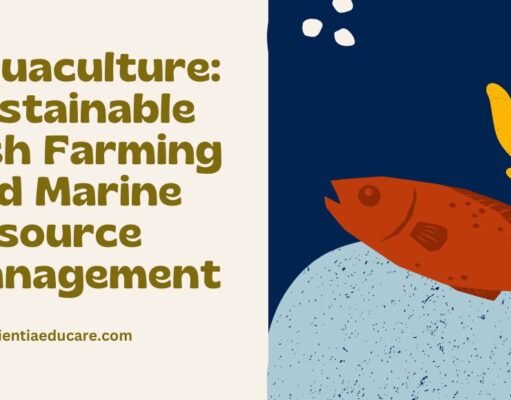The Cell: Structure and Functions Explained
The Cell: Structure and Functions Explained
Introduction to the Cell
The cell is the basic structural and functional unit of life. All living organisms are composed...
Evolutionary Processes: Speciation and Adaptive Radiation
Understanding Evolutionary Processes: Speciation and Adaptive Radiation
IntroductionSpeciation and adaptive radiation are fundamental processes that drive biodiversity and the formation of new species. While speciation...
Latest Trends in Biophysics and Structural Biology for Research and Exams
Latest Trends in Biophysics and Structural Biology for Research and Exams
Introduction
Biophysics and structural biology are evolving fields that integrate physics, chemistry, and biology to...
Immune System Disorders: Autoimmune and Allergic Reactions
Understanding Immune System Disorders: Autoimmune and Allergic Reactions and Their Impact on Health
Introduction
The immune system plays a crucial role in protecting the body against...
Excretory System: Kidney Function and Waste Removal
Excretory System – Kidney Function and Waste Removal
Introduction: The excretory system plays a crucial role in maintaining homeostasis by removing waste products from the...
Immunodeficiency Disorders: Causes, Examples and Treatments
Immunodeficiency Disorders: Causes, Examples and Treatments – A Comprehensive Guide
Introduction
Immunodeficiency disorders are conditions in which the immune system fails to function properly, making individuals...
Human Circulatory System: Heart, Blood and Blood Vessels
Exploring the Human Circulatory System: Understanding the Heart, Blood and Blood Vessels
The human circulatory system plays a vital role in maintaining homeostasis and ensuring...
Evolutionary Developmental Biology (Evo-Devo): A Modern Perspective
Evolutionary Developmental Biology (Evo-Devo): A Modern Perspective
Introduction
Evolutionary Developmental Biology, commonly known as Evo-Devo, is an interdisciplinary field that integrates evolutionary biology and developmental biology...
Pharmacogenomics: Personalized Medicine Approaches
Pharmacogenomics: Personalized Medicine Approaches for Targeted Therapy
Introduction
Pharmacogenomics is an emerging field that integrates genomics with pharmacology to develop personalized medicine approaches. It aims to...
Flow Cytometry: Principles, Applications and Clinical Significance
Flow Cytometry: Principles, Applications and Clinical Significance in Modern Diagnostics
Introduction
Flow cytometry is a powerful technology widely used in medical diagnostics, immunology, and cell biology....
Biomedical Devices: Innovations in Diagnosis and Treatment
Biomedical Devices: Cutting-Edge Innovations in Diagnosis and Treatment
Introduction
Biomedical devices have revolutionized healthcare by improving the accuracy of diagnosis, enhancing treatment efficiency, and enabling personalized...
Enzyme Kinetics and Catalysis: A Biophysical Perspective
Enzyme Kinetics and Catalysis: A Comprehensive Biophysical Perspective on Mechanisms, Models, and Applications
Enzyme kinetics and catalysis are essential areas in biochemistry that explore the...
DNA Structure and Function: The Blueprint of Life
DNA Structure and Function: The Blueprint of Life
IntroductionDNA (Deoxyribonucleic Acid) is the fundamental molecule that carries the genetic instructions for the development, functioning, and...
Principles of Structural Biology: A Beginner’s Guide
Principles of Structural Biology: A Beginner’s Guide to Understanding Biomolecular Structures
Introduction
Structural biology is the branch of biology that focuses on the molecular structure of...
Bioenergetics: ATP Synthesis and Energy Transfer in Cells
Bioenergetics: The Intricacies of ATP Synthesis and Energy Transfer in Cellular Metabolism
Introduction
Bioenergetics is the study of how energy flows through living organisms. Central to...
Stem Cells and Their Role in Regenerative Medicine
Stem Cells: The Key to Unlocking Regenerative Medicine and Future Therapeutic Innovations
Introduction
Stem cells have revolutionized modern medicine by offering hope for treating degenerative diseases,...
Climate Change: Impact on Ecosystems and Biodiversity
Climate Change and Its Profound Impact on Ecosystems and Biodiversity
Climate change, driven by human activities such as the burning of fossil fuels and deforestation,...
Biomechanics of Human Movement: Understanding Muscle and Joint Functions
Biomechanics of Human Movement: Exploring Muscle and Joint Functions for Enhanced Performance
Introduction
Biomechanics is the study of the mechanical principles governing human movement. It explores...
Humoral vs. Cell-Mediated Immunity: Key Differences and Functions
Humoral vs. Cell-Mediated Immunity: Understanding Their Key Differences and Functions in Immune Defense
Introduction
The immune system is a complex network of cells, tissues, and organs...
Sustainable Development and Environmental Ethics
Sustainable Development and Environmental Ethics – Bridging the Gap Between Progress and Preservation
Introduction:
Sustainable development is an approach to growth that meets the needs of...


















